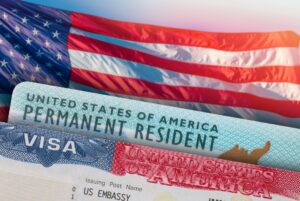At US-ILC, we listen, we care, we deliver: Let our 89 years of combined experience help you navigate the complexities of immigration law!
You may have heard this question when it comes to illegal immigration in the United States. Why don’t they just come the legal way like my family did?
While it is a legitimate question to ask, the answer is more complex than most people understand. The fact is that your country of birth is the most significant factor that determines the level of difficulties you will face when seeking a legal route to come to the U.S. Nationals from some countries have a much easier time obtaining legal status than those from other countries.
Which Country’s Nationals Face the Least Difficulties Immigrating to the U.S.?
Federal immigration laws benefit Cubans the most, as they can legally immigrate to the U.S. based on the Cuban Adjustment Act signed by President Lyndon Johnson in 1966. The Act allows qualifying Cuban nationals to enter the U.S., and once they have been here for one year and one day, they can apply for a 10-year Green Card. Unlike nationals from most other countries, they do not need to be sponsored by a family member or an employer or seek asylum.
Immigration laws can also create pathways for nationals of certain countries to legally enter the U.S., based on events in their countries. In the years since Russia began invading Ukraine, thousands of Ukrainians have temporarily immigrated to the U.S. through the government’s Uniting for Ukraine program. Additionally, a humanitarian parole program was established in 2022 and 2023 to help nationals of Haiti, Cuba, Venezuela, and Nicaragua legally immigrate to the U.S. for up to two years – although this program will no longer be extended.
Which Countries’ Nationals Face the Most Difficulties Immigrating to the U.S.?
Nationals from India have the lengthiest wait time when it comes to immigrating to the U.S. If you are a national of India, you will face a backlog of 10 to 15 years to obtain permanent resident status through an employment-based immigrant visa, regardless of your level of education. Other countries with long wait times include:
• China
• The Philippines
• Mexico
• Vietnam
• El Salvador
Why Do Immigration Laws Vary by Country of Birth?
One of the main reasons that immigration laws vary by country of birth is due to quota laws. The U.S. has placed an annual cap of 7 percent cap on the number of nationals from each country who are eligible for immigrant visas. This has created a years-long backlog for nearly one million foreign nationals, mostly from India, in the employment and family-based categories.
Nationals from many other countries will meet challenges obtaining legal status to enter the U.S., even without specific restrictions. These countries often have higher visa demand due to poverty, crime, and political conflicts. Most individuals arriving at the Southern border come from such nations. So, when considering why some foreign nationals enter the U.S. without legal means, the more accurate question is: What is your family’s country of origin?
If U.S. immigration laws are impacting your ability to immigrate to the U.S. due to your country of birth, or if you have questions regarding an immigration legal matter, contact U.S. Immigration Law Counsel for a strategy session to discuss your case.




